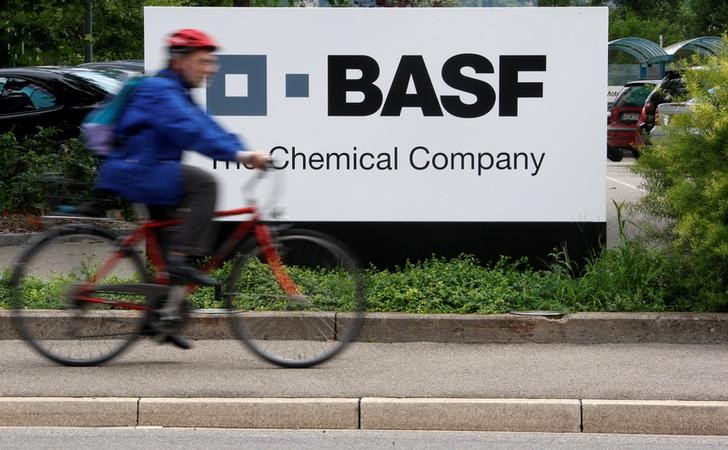Investing.com -- Shares of BASF SE (OTC:BASFY) was down 2% on Wednesday following its third-quarter results, which posted weaker-than-expected results across several key divisions, despite some areas showing resilience.
The company's adjusted EBITDA came in at €1,622 million, falling 3% below market consensus. The chemicals division, a traditional pillar of BASF's operations, was particularly underwhelming, as operational outages and ramp-up costs in China weighed heavily on performance.
BASF reported quarterly group sales of €15.74 billion, however, the positive topline performance was insufficient to offset operational challenges.
Adjusted EBIT for the quarter fell short of consensus estimates, landing at €635 million. Weak profitability in the Agricultural Solutions segment was one of the most major drags, with EBITDA plunging by 61%, reflecting both pricing pressures and unfavorable currency movements.
The company also revised its full-year guidance, indicating that adjusted EBITDA is likely to come in at the lower end of the €8-8.6 billion range.
Jefferies now expects BASF's full-year EBITDA to reach €7.8 billion, marginally below the consensus estimate of €7.9 billion.
The analysts pointed to continued sluggishness in some key markets, but also acknowledged improving momentum in core businesses such as Nutrition & Care, which outperformed expectations with a 40% rise in adjusted EBITDA.
Investor sentiment was further rattled by BASF’s deteriorating cash flow metrics. Free cash flow for the quarter stood at just €569 million, a significant drop from the €1.47 billion recorded in the same period last year.
Additionally, net debt increased to €19.7 billion, representing a leverage ratio of 2.8x EBITDA, signaling financial pressures that could limit the company’s flexibility going forward.
Despite some bright spots, such as higher-than-expected sales volumes in materials and industrial solutions, the overall tone of the report left investors cautious.
BASF's performance reflects broader economic headwinds, including weakened demand in Europe and volatile conditions in China.
Jefferies analysts emphasized that while some stabilization is evident in BASF’s portfolio, the company’s profitability remains exposed to fluctuating energy prices and a softer global macroeconomic environment.
“Overall 3Q24 is in-line but the mix is different vs expectations. We expect small upgrades to consensus and this could drive relief in the share price,” said analysts at Morgan Stanley (NYSE:MS) in a note.
